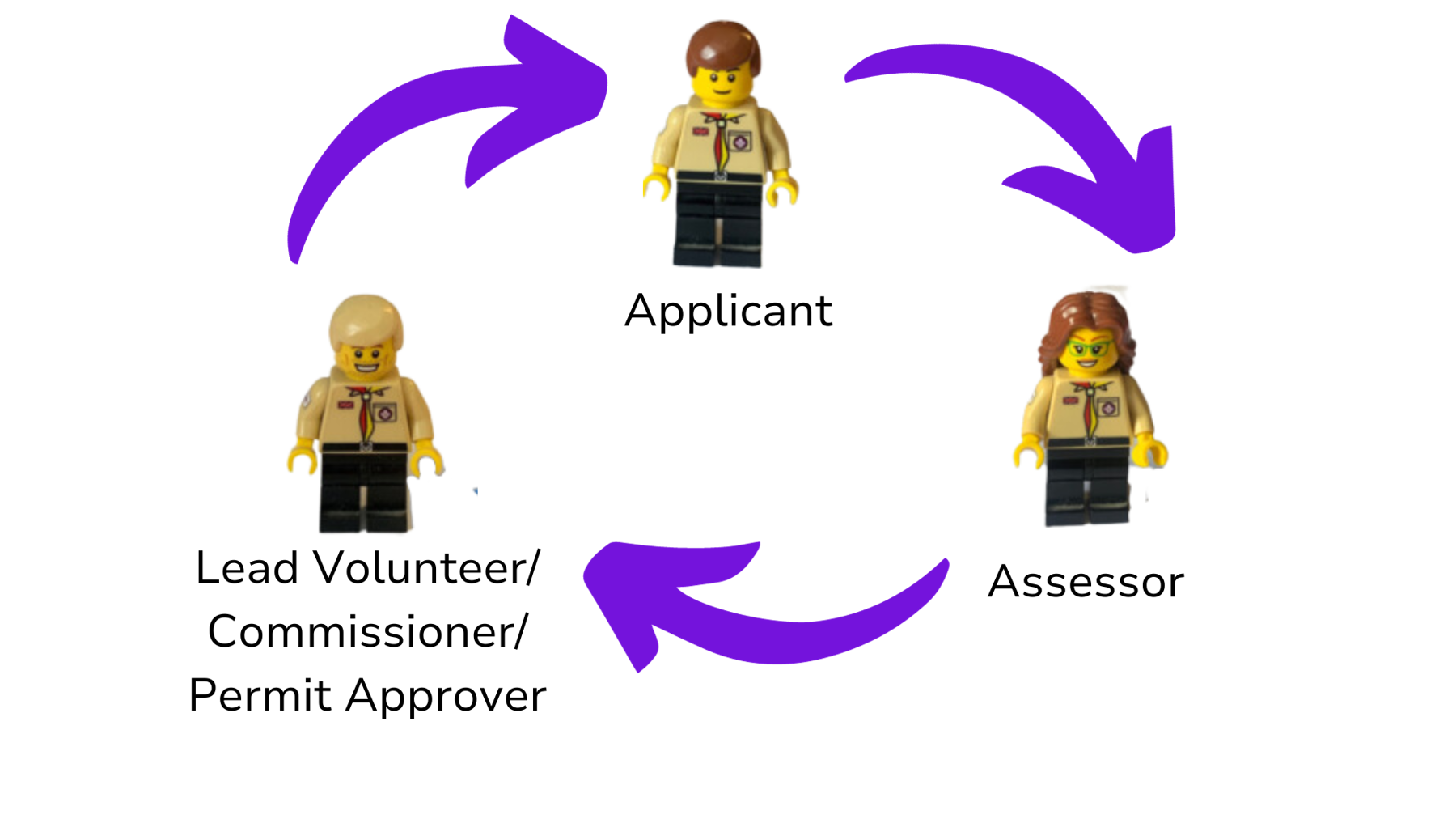How the scheme works
How the scheme works

There is no prerequisite training required to gain any permit. The applicant needs to show an Assessor that they have the required level of technical competence and experience. It doesn’t matter how they reached that level.
Many people will have either undertaken training accredited by National Governing Bodies (NGBs), be regular participants, or have obtained experience through a club. Experience gained as a young person is also valid.
There are no age limitations to gaining a permit, so as long as the applicant has the skills and experience required, it is quite feasible for a young person under 18 to gain a permit.
The permit is granted by the Commissioner / Lead Volunteer or Permit Approver. This will be your District Commissioner / Lead Volunteer if you have a Group or District appointment, and your County Commissioner / Lead Volunteer if you have a County appointment.
Permits are managed through the membership system, from application, assessment, checks on suitability and safety/safeguarding and finally the granting of the permit. It is this record on the membership system that is the definitive record of whether you have a permit and exactly what it covers. If it’s not recorded here, it does not exist.
Note: Under 18’s holding permits must be managed and recorded locally until the functionality to record young people within the membership system is available.
A Commissioner / permit approver can only grant a permit on the recommendation of an assessor. To fulfil this role Counties may appoint County Assessors for each adventurous activity, or it is possible to use a suitably qualified external assessor. The assessor will provide a recommendation based on an assessment of the applicant against the relevant assessment checklist.
A permit lasts for up to five years. If you wish to continue leading the activity for young people after this you will need to apply for a new permit The process for getting a new permit when a permit has expired is exactly the same as getting a first permit however the method of assessment may vary due to your experience with your previous permit.
Types of permits
There are three levels of permit available; personal, leadership, supervisory:
Age Restrictions:
-
Maximum age 17, no minimum age.
Allows:
-
Taking part in the activity with others who hold personal permits.
Doesn't allow:
-
Leading the activity for anyone without a permit.
Useful for:
-
Allowing young people to progress in an activity by practising with their peers or to participate in peer-led expeditions.
Age Restrictions:
-
No maximum or minimum age.
Allows:
-
Leading the activity for a group of young people while remaining with them.
Doesn't allow:
-
Remotely supervising an activity or working with multiple groups.
Useful for:
-
Introducing and training young people in an activity by working directly with them.
Age Restrictions:
-
No maximum or minimum age.
Allows:
-
Remotely supervising an activity for multiple groups.
Doesn't allow:
-
Approving groups to take part in the activity without remotely supervising them.
Useful for:
-
Developing young people by giving them opportunities for supervised responsibility.
-
Developing future permit holders by giving them opportunities to deliver activity under supervision.
Further details of how these permits work for each activity can be found in the guidance for the specific activity.
It should be recognised that a supervisory permit is a very high-level permit that shouldn’t be given out lightly. It is designed for very experienced members who have taken part in their activity in multiple locations and have seen and know how to deal with almost every eventuality.
When under 18’s are granted permits, they are not checked for the safety and safeguarding elements (see below), so when an under 18 turns 18 their permit expires until these requirements are carried out. They can automatically get a new permit, once these requirements have been met without needing a new technical competence assessment.
There are four areas assessed to gain a permit:
Technical Competence – This looks at the specific technical skills required to run the activity. It is usually assessed through a practical assessment but other evidence such as logged experience and other qualifications held can help as well. There is an assessment checklist for each activity listing the skills that will be assessed.
(By the Assessor)
Scout Association Rules – This checks whether the applicant is aware of the activity rules and how they affect the activity within Scouting.
(By your Commissioner / Lead Volunteer, Permit Approver or County Assessor)
Safety and safeguarding (not for applicants who are under 18) – This will be carried out by the Commissioner / Lead Volunteer or Permit Approver or their nominee and ensures that the necessary personal enquiry checks have been carried out and the appropriate safety and safeguarding mandatory learning has taken place.
(By your Commissioner / Lead Volunteer, Permit Approver)
Personal Suitability – This is to check the applicant is suitable (in terms of attitude, health for the activity involved etc.) to be leading an adventurous activity for young people. This may require the permit approver to seek input from others who know or operate with the applicant.
(By your Commissioner / Lead Volunteer, Permit Approver)